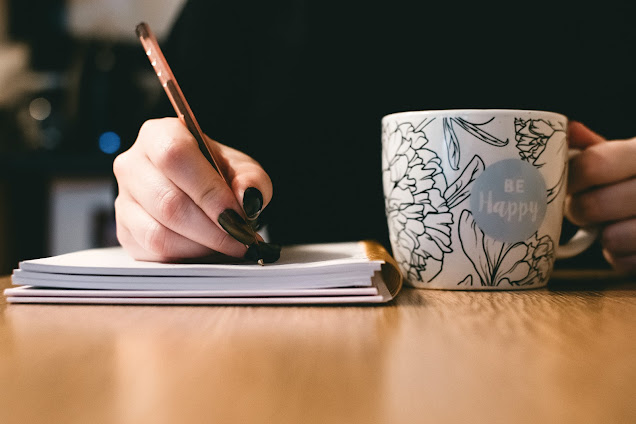Since August of last year, I began studying Korean language, their culture, and Hangul.
Studying may be hard, for you consider grammar, the level of speech, and several vocabulary words (-.-) but I think I can do it. I will do it.
 It all started by a student teaching me on how to write in Hangul, he gave me a list of the letters, and I studied them overnight, which shocked all my Korean students. Well, a teacher being taught is quite awkward, right? But I don't mind. Haha..
It all started by a student teaching me on how to write in Hangul, he gave me a list of the letters, and I studied them overnight, which shocked all my Korean students. Well, a teacher being taught is quite awkward, right? But I don't mind. Haha..
I consider myself an advanced beginner, as I can talk in Korean quite well for a beginner. I can speak and write in Hangul in talking to my students in Skype or Facebook, and I once able to help my hospital by handling a Korean client who does not speak English that much. Korean people whom I meet here in the Philippines are also amazed by how I speak in Korean.
Well, I mentioned something about a hospital event. I would like to share it with you!~
I am currently working in a hospital. While I was busy doing my work, a Korean approached me, and I can't understand what he was saying, until he said the words "patient, here?". While I was listening to him, I immediately noticed that he is Korean. Well, as I think that he does not speak English that well, I used Korean to talk to him. Here's our dialogue:
Korean: "Patient, here?"
Me: "Seonsaengnim, hwanja ireum juseyo.." (Sir, can I have the patient's name?) (I gave him a paper to write the name of the patient.)
Korean: (writes the patient's name)
Me: "Seonsaengnim, jamkamanyo." (Sir, a moment please.) (I searched the name on the hospital's database, no patient named like that.)
Me: "Seonsaengnim, hwanja-neun byeongwon-e obseumnida. (Sir, the patient is not in the hospital.)
Me: "Saem, kidaryo-shipsho. Ship-wo bun ieyo" (Sir, please wait, 15 minutes, it is.)
Korean: "Ne."
(So while waiting for the patient, the Korean national watched TV first, which might be so hard for him, as it is in Filipino. He also talks to me, which is quite enjoying.)
Korean: "Waaaaah, Hangug-eo arrayo." (Wow, you know Korean.)
Me: "Ne.. Gunyang (making a hand signal signifying "small")" (Yes, just a little.)
Korean: "Ne.. (Yes.) Hehehehe.. Small English only"
Me: "Hajiman, Hangug-eo, jinjja oryowo." (But, Korean language is really hard.)
Korean: "Ani, Yeong-eo oryowo. Tagalog oryowo." (Of course not! English is hard, Tagalog is hard.
Me: "Aniyo!"
Korean's friend: "Yes. English very easy, Tagalog very easy."
Me: "Gu-reomnyo!" (Of course!)
(We are all laughing. And then, the Emergency Room called to the person I'm next to, the admitting officer, and was told that the patient is in the ER.)
Admitting staff: "Sir, please go to the Emergency Room."
Korean: "Ne?" (What?)
Admitting staff: "The Emergency Room sir. Go to the ER."
Korean: (Still confused) "Eh?"
Me: "Seonsaengnim, eunggeubsil ka-yo." (Sir, please go to the emergency room.)
Korean: "Ah, arasso!" (Oh, I understand.) (Leaving)
Me: "Seonsaengnim, paran mun ieyo." (Sir, it is the blue door.)
Korean: "Ne. Arasso!" (OK!)
Well, as the patient left the room, all people (even the patients) are staring at me. The admitting officer told me, "Sir, ang galing mo naman, nag-aral ka ba ng Korean?" (Sir, you're brilliant! Did you study Korean?) I told her that I studied by myself, and I'm still practicing right now. How convenient is the knowledge, eh?
 |
"Sorry, sorry" - for speaking in
casual Korean.. |
However, I noticed that I spoke in a very casual way, which is a no-no in people you just met the first time. I'm sorry!! T_T
I'm currently looking for a language exchange partner, or a Korean friend to help me in developing my skill, but unfortunately, there are no Koreans nearby.
That's it. These things inspire me to do my best in studying the language. I will definitely talk in a fluent, if not perfect, Korean. :D




Congrats on learning Korean on your own.
ReplyDeleteI've been going on and off since 2010 and still can't have a conversation :/
I guess I just need to put more effort into it :)
Well, there will always be a chance to speak to real Koreans. You can have a language exchange partner, if you can! 화이팅!~
Delete안녕하세요 i am a big fan of 한글, 하치만 I want to talk to a real korean, so do you know any online sites or portal where I can get in touch with Koreans... that would be a great help sir... kahmsamnida��
ReplyDelete